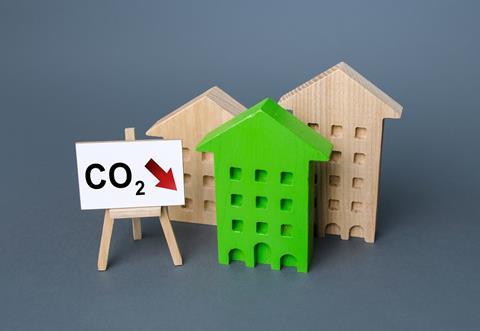Updated version expanded to encompass all built assets across the world
The Royal Institution of Chartered Surveyors (RICS) has published an updated version of its standard for whole life carbon assessments (WLCA) in the built environment.
The 2023 edition is the standard’s first major overhaul following its original publication in 2017 and is global in scope.
The RICS said the new edition provides a considerably more developed understanding of the carbon costs and benefits of design choices in construction and infrastructure projects.

Produced in partnership with the UK Department for Transport and Net Zero Waste Scotland, it has been updated to allow it to be used across the world and to cover all built assets and infrastructure schemes throughout the built environment lifecycle.
Its publication follows a public consultation held this March which received more than 1,300 responses.
It is hoped that the global focus of the new edition will lead to more nations incorporating its methodologies into their regulatory structures, the RICS said.
The institution will promote the new standard at the upcoming United Nations Climate Change Conference, which will be held in November and December this year in Dubai.
RICS chief executive Justin Young said the second edition is a “truly global standard for a global problem”.
The organisation’s director of surveying standards, Charlotte Neal, added: “The built environment has been crying out for tools to measure its impact on climate change, which is crucial for developing mitigating practices to significantly reduce the industry’s carbon output.
“By providing a consistent methodology to assess the carbon output of buildings throughout their entire lifecycle, the second edition of WLCA will significantly improve the industry’s ability to measure and manage its impact on climate.”
The built environment contributes around 40% of all global carbon output and 50% of extracted material, according to the United Nations.


























No comments yet